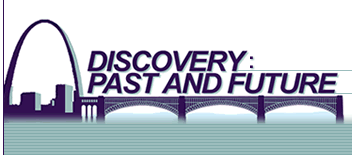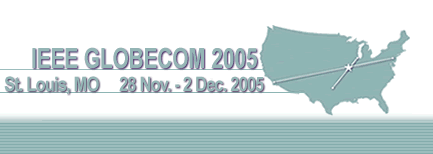IEEE GLOBECOM 2005 Workshop, WO 1
Title: 2nd IEEE International Workshop on Adaptive Wireless Networks (AWiN), 2006
Duration: Monday, 28 November 9:00AM - 5:00PM
Location: Majestic Ballroom A / Level Two / Renaissance Grand Hotel
Instructors:
Rajarathnam Chandramouli, Stevens Institute of Technology, Hoboken, NJ
Sajal Das University of Texas at Arlington Arlington, TX
Description:
Mobile wireless network characteristics inherently vary in time and space. Therefore it is imperative that wireless protocols and algorithms adapt themselves to these changes in order to maximize performance. For example there are ongoing efforts in improving data rate, reliability and security in next generation wireless standards. Higher mobile speeds and data rates, support for multimedia applications, battery power constraint, location dependent security, real-time access of mobile databases, and other factors add to the challenges in designing adaptive wireless networks. Moreover, opportunities for adaptive wireless networking exist in several layers of the protocol stack. Adapting the protocols in individual layers and across layers to suit user traffic, channel and route state, congestion, security requirement, real-time constraint etc. is a big challenge being addressed by both industry and academia. The intent of this workshop is to present and discuss practical adaptive algorithms/protocols for wireless networks and their performance analysis. This one-day workshop deals with the theory and practice of adaptive protocols and algorithms for mobile and wireless computing and networking. Applications of adaptive techniques to cellular, ad hoc, sensor, mesh, agile and software radios and other types of wireless networks are of interest. Since this is an inter-disciplinary topic, both theoretical and experimental papers on this subject as applied to the workshop theme will be considered.
Motivation:
Adaptive algorithms come in different forms. In electrical engineering (EE) community, stochastic adaptive control/learning control is a good example. On the other hand, in computer science (CS) community, the theory of competitive analysis and competitive algorithms are used. A rich set of mathematical and algorithmic tools exist in this topic that we feel has not been exploited fully for the mobile and wireless networks. Besides, we expect this workshop to help cross-fertilize ideas from the EE and CS communities. From this perspective, this workshop is unique.
Even though GLOBECOM 2005 has a general wireless theme, our proposed workshop is well focused that is expected to bring together a set of experts in the emerging topics wireless communications and computing. We are already beginning to see papers on this topic appear in major IEEE and ACM conferences. Therefore, conducting this unique workshop in conjunction with a major conference like GLOBECOM will not only be timely but also create new spur of research activities in this topic.





















